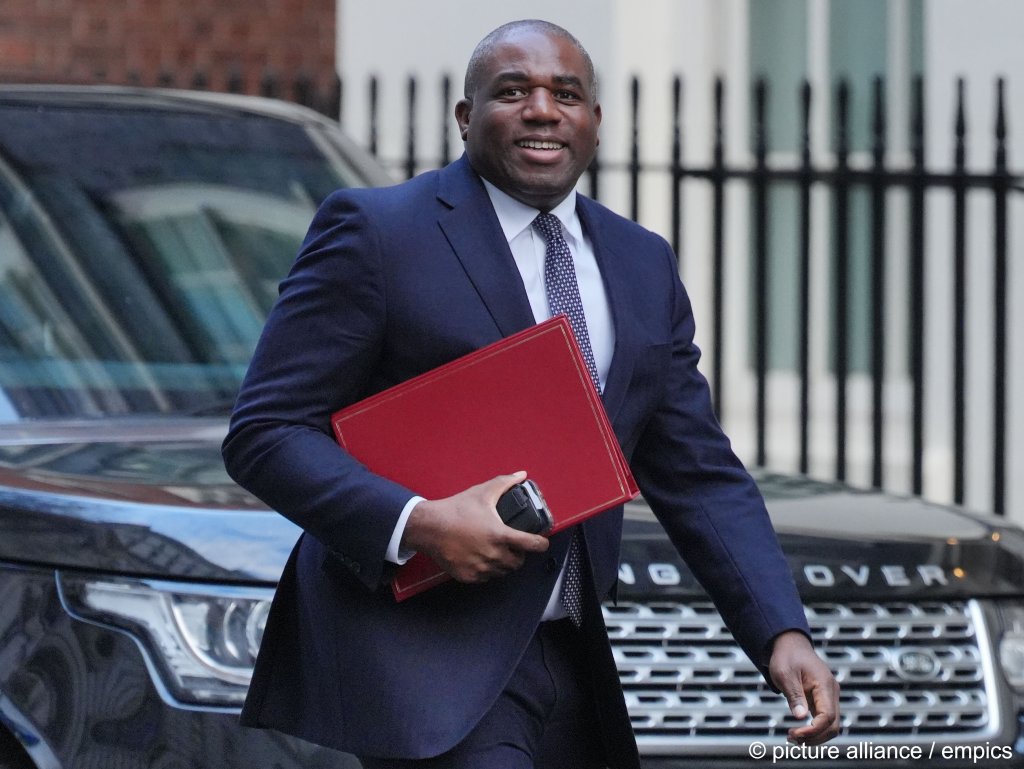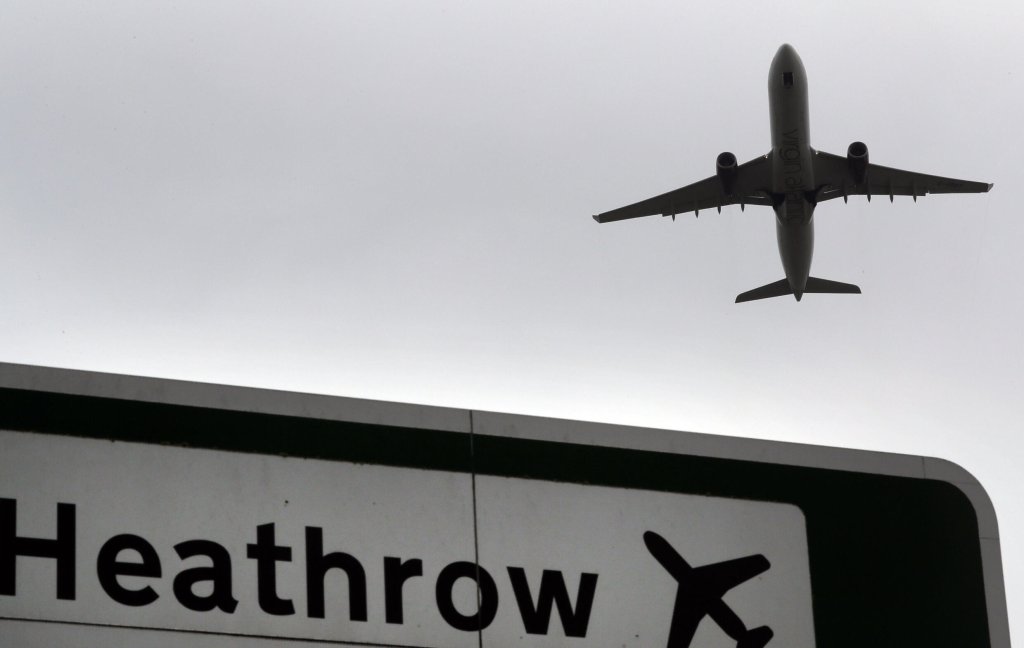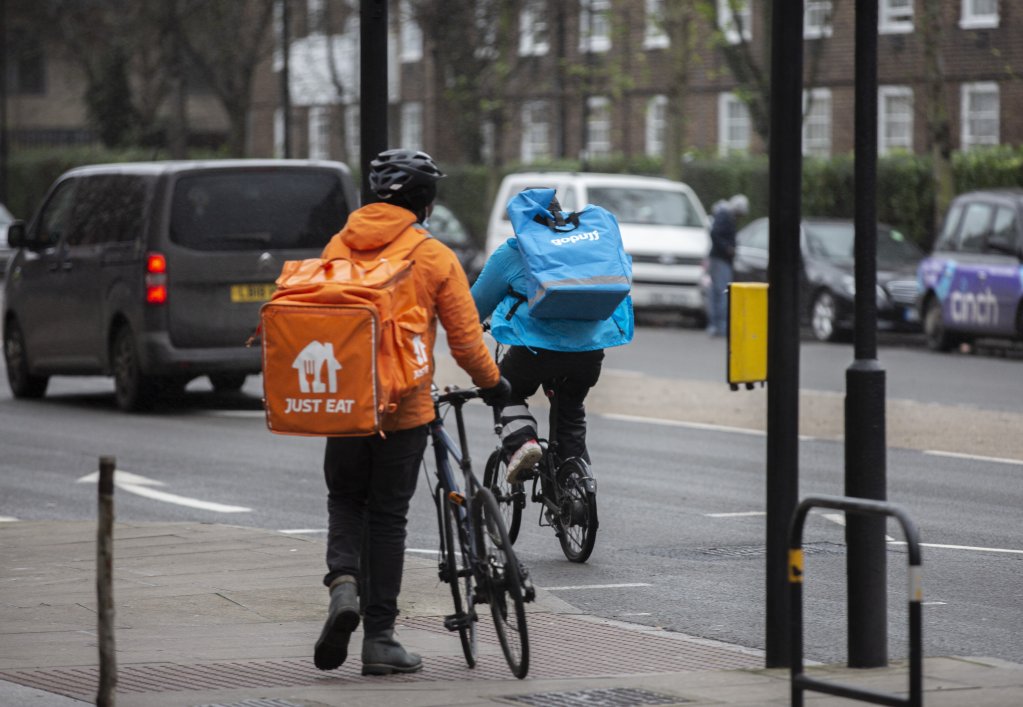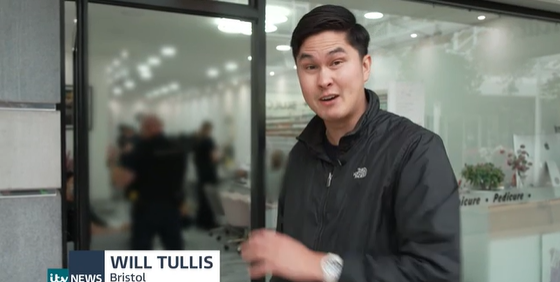The UK government is enacting its newly announced migration policies, designed to clamp down on illegal working and to speed up the deportation of convicted migrant criminals.
Since coming to power a year ago, the UK government has returned around 35,000 people with no right to be in the UK. This includes failed asylum seekers, as well as those who have been found to have committed immigration and other criminal offenses.
Previously, foreign nationals convicted of a crime would have the right to have their appeals heard in the UK, which could sometimes lead to offenders remaining in the UK for months or even years, said Britain’s Home Secretary (Interior Minister) Yvette Cooper in a press release dated Sunday (August 10).
Now, the British government is expanding its scheme to return people before hearing their appeals. The "Deport Now, Appeal Later" program is due to be nearly trebled, expanding from eight countries to 23.
Foreign nationals from countries like Angola, Australia, Botswana, Brunei, Bulgaria, Canada, Guyana, India, Indonesia, Kenya, Latvia, Lebanon, Malaysia, Uganda and Zimbabwe have been added to the list of countries to which the UK can now deport convicted criminals before hearing their appeals.
Read AlsoUK: Skilled labor migration to be severely curtailed under new plans
UK Home Secretary: 'We are restoring control'
"For far too long, foreign criminals have been exploiting our immigration system, remaining in the UK for months or even years while their appeals drag on," Cooper said in the press release. "That has to end. Those who commit crimes in our country cannot be allowed to manipulate the system, which is why we are restoring control and sending a clear message that our laws must be respected and will be enforced."

Britain’s Foreign Secretary, David Lammy, added that he and his team are "leading diplomatic efforts to increase the number of countries where foreign criminals can be swiftly returned, and if they want to appeal, they can do so safely from their home country."
Lammy said that the scheme was designed to "uphold our security and make our streets safer."
The new deportation rules for criminals are part of the government’s plan for change, to tackle immigration in the country, for which it has repeatedly come under fire since it took office in July 2024.
Read AlsoUK to end use of hotels for migrants
Scaling up the removal of foreign criminals
The "deport now, appeal later" scheme was actually introduced under the previous Conservative government and operated with just eight countries on the list. But the Labour government says it is keen to remove "foreign criminals at the earliest opportunity, easing pressure on the detention and prison estate."
Britain’s inspectorate of prisons and the government itself has admitted that there are not enough places left in British prisons and has been enacting a variety of measures for domestic criminals, too, including early release schemes, some of which have been criticized.
Since July 2024, when Labour took office, the government says it has been operating a "comprehensive approach to scale up our ability to remove foreign criminals." They say they have removed "almost 5,200" since July 2024, which represents an increase of 14 percent compared to the 12 months before that date.

Faster deportations, says the government, will save the taxpayer money. The Home Office is also working on new legislation aimed at stripping asylum seekers who commit "notifiable sex offenses" of their rights to claim refugee protections.
Read AlsoUK: Nationwide arrests of suspected migrant smugglers
Monetary investment to boost enforcement and removals
The British government said it has invested five million pounds (around 5.7 million euros) to deploy "specialist staff" in almost 80 jails, "with one clear mission – speeding up removals."
In addition, the British authorities have also been increasing the number of raids aimed at preventing illegal work by asylum seekers, reporting a 50 percent increase in operations and arrests since July 2024.
According to a government press release, the immigration enforcement teams are also due to receive a 5 million-pound boost. It was unclear if this was in addition to or as part of the same sum offered to deploy "specialist staff" in prisons to speed up removals. The money would allow officers to "revisit and re-attend illegal working hotspots more frequently and increase enforcement teams’ intelligence gathering capabilities to support frontline enforcement activity."
The cash injection is part of a previously announced 100 million pound investment (around 115 million euros) to be spent on border security overall, according to the government.

Week-long illegal working crackdown
On August 9, the UK government stated in a press release that they had arrested "hundreds in illegal delivery rider shut-down" raids. The week-long series of raids was dubbed "Operation Equalize," and consisted of the Home Office’s Immigration Enforcement teams focusing on migrants working in the gig economy, particularly as food delivery riders.
Between July 20 and 27, a total of 1,780 individuals were "stopped and spoken to," leading to "280 arrests for illegal working activity." As a direct result of these raids, the Home Office said that 53 individuals are having their asylum support reviewed, "which could result in their support being suspended or withdrawn."
The raids followed agreements with food delivery companies in the last few months, as well as frequent warnings from ministers that the government would not tolerate asylum seekers working illegally.

Britain’s Minister for Border Security and Asylum, Dame Angela Eagle, said, "illegal working undermines our border security and we’re cracking down hard on it." She added that the government wanted to make sure that its rules are respected and enforced and that “organized immigration crime” was rooted out at every level of society.
Read AlsoUK: Crackdown on unauthorized gig workers
51 businesses could face 'hefty fines' if found to be in breach of the law
In addition to the arrests, the illegal working raids issued 51 businesses, including car washes, restaurants and retail premises with civil penalty referral notices. This will mean the business owners will face "hefty fines" if they are found to have employed illegal workers or failed to carry out the relevant pre-employment checks.
During the raids, the authorities recovered 71 vehicles, including 58 e-bikes, as well as 8,000 pounds (around 9,200 euros) and around 460,000 pounds worth of illicit cigarettes (around 531,000 euros). As of March 26, 2025, immigration enforcement powers were updated, to include among other things, the ability to arrest and detain suspected immigration offenders for the purposes of removing them from the UK. The Proceeds of Crime Act also allows officers to search for, seize, detain and forfeit cash, suspected of being recoverable property obtained through or for use in unlawful conduct.
In one raid on July 22 in London, seven Indian nationals were arrested and five detained as a result. In another raid on July 25 in Birmingham, immigration officers arrested two riders, one from Bangladesh and the other from Ethiopia for "illegal working offenses."
Gig economy companies are now legally required to make sure that anyone working for them has the legal right to do so.

Britain’s ITV News embedded itself with one enforcement team in Bristol, where the team raided a nail salon. According to the reporter, the premises had already been raided four times in the last year. At least one of the three arrested on the day the TV cameras were there was reported to be an asylum seeker.
Lastly, the government is also working hard to reduce the asylum backlog, which leads to more people being housed in hotels and other accommodation sites while they wait for their asylum case to be addressed. The government says it has increased asylum decision-making by more than 116 percent over the last year. It claims that fewer asylum hotels are now open, "saving millions of taxpayers' money."
Read AlsoUK: Government calls for reform of European human rights convention to help manage migration
